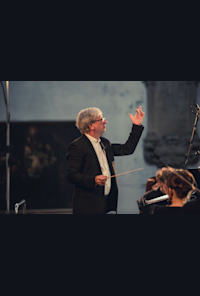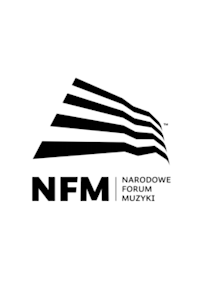As every year, maestro Andrzej Kosendiak will share with the audience his passion for discovering Polish works of early music. This time he will present us the works of the leading native composer of the 18th century music - Marcin Józef Żebrowski.
The composer was associated with Jasna Góra, the spiritual capital of Poland, and at the same time a thriving center for the development of musical art. We will hear his Christmas Mass, the Magnificat anthem and the antiphon from the so-called rorat – works at the highest European level of composition. Żebrowski was a singer (bass), virtuoso violinist, conductor, teacher and composer, and his career gained momentum when he joined the choir at the monastery in Częstochowa. He was probably the first Polish artist to print his symphonies abroad and the only native author of the concerto grosso . He had unconventional melodic ideas, used elements of the Neapolitan style and Polish folk music. At the festival concert we will hear his sacred works composed for the monastery at Jasna Góra.
The Magnificat , or hymn to the Virgin Mary sung at Vespers (evening breviary prayer), is in the style of an Italian verse cantata. It delights with its contrasts and developed concertante technique. Noteworthy are both solo passages full of melodic invention (headed by the beautiful soprano aria Suscepit Israel) and excellent mastery of the art of counterpoint. Rorate caeliis the antiphon that begins the votive mass about the Blessed Virgin Mary, called roraty. It is celebrated early in the morning on the weekdays of Advent, i.e. the period preceding Christmas. The first words of the antiphon "Rorate, caeli desuper, et nubes pluant justum" ("Drop the dew, heavens, and let the clouds pour out the Just One") are a request for the coming of the Savior. In Żebrowski's arrangement of this song, the features of the classical style are already visible. Missa pastoritia ex D belongs to the genre of pastoral (literally: pastoral) masses popular in the 18th century, intended to be performed during Christmas. In Żebrowski's composition, attention is drawn to the clearly noticeable rhythms of Polish dances, especially the polonaise. The solo parts sound especially beautiful ( Domine Deus, Quoniam or Benedictus ).
None of the Polish music bands has such a long history and left behind as many sheet music as the Jasna Góra band to which the composer belonged. The group has existed since the 16th century at the most important religious center in the country. The Sanctuary with the Miraculous Image of the Mother of God has been a destination of pilgrimages for over six hundred years, and during the partitions it was a place that upheld the morale of Poles and the spirit of patriotism. The basilica, visited by crowds of faithful, dignitaries and crowned heads, needed an appropriate musical setting. The priceless sheet music collection of the monastery library, including Żebrowski's works, is a cultural heritage worth getting to know.


